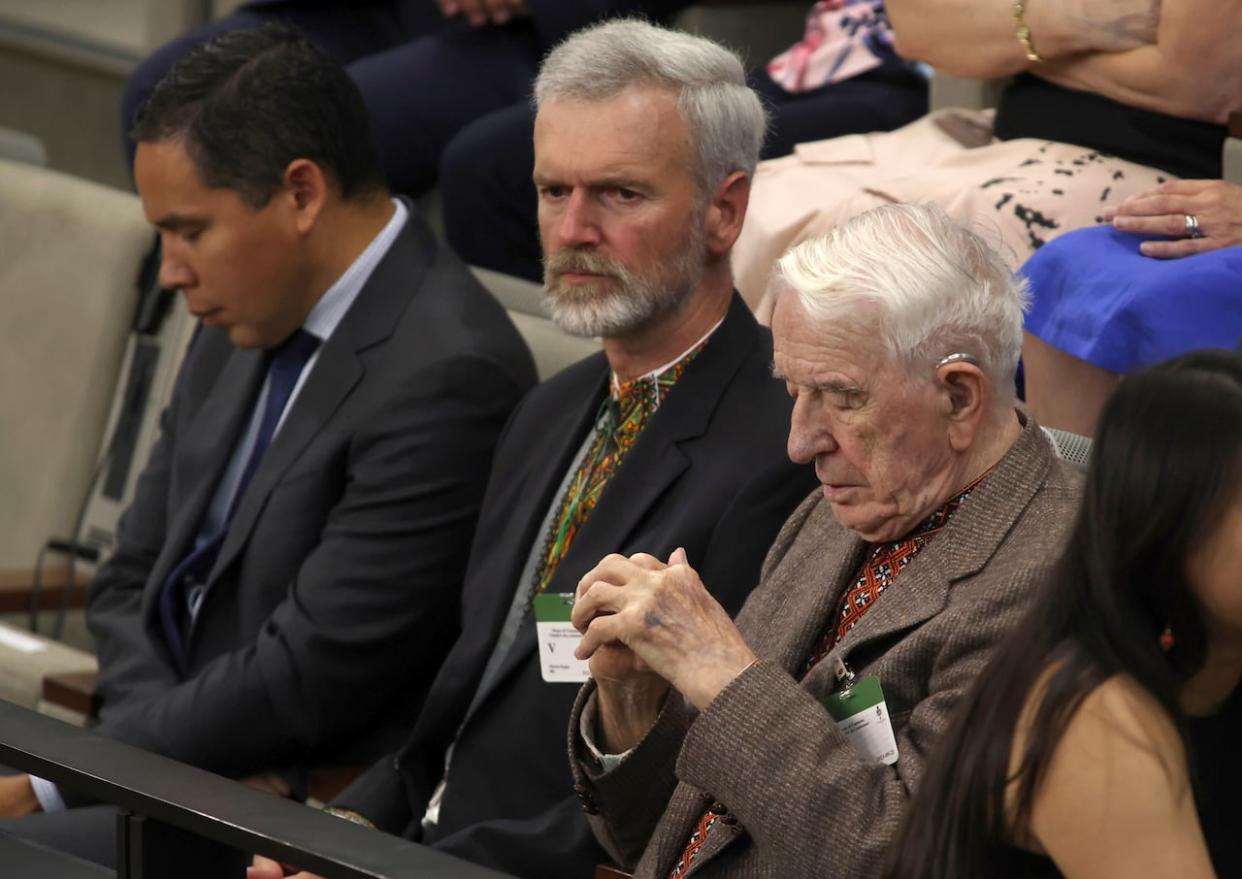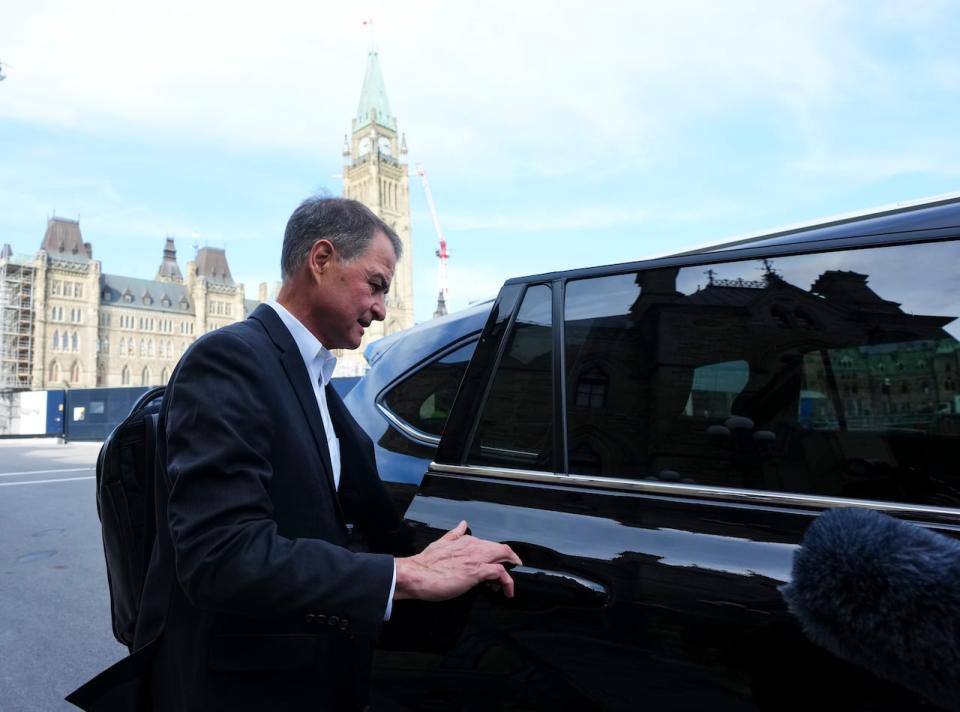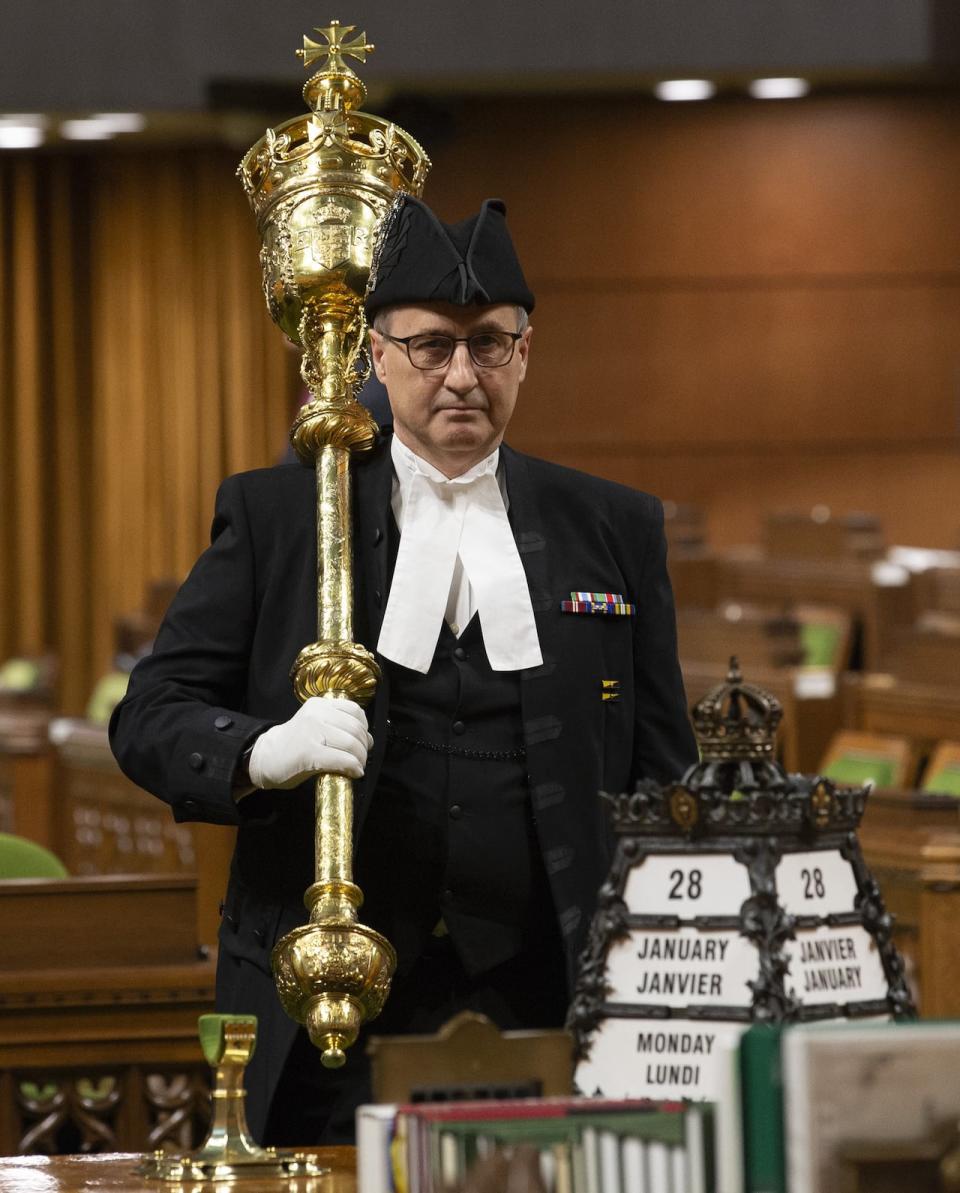Commons staff would not have screened Yaroslav Hunka for 'reputational risks,' MPs told

House of Commons staff members are not tasked with screening guests for "reputational risks," MPs on a committee looking into the Yaroslav Hunka affair were told Tuesday.
Hunka, a veteran of the Waffen-SS Galicia Division — a voluntary unit under the command of the Nazis during the Second World War — was given a standing ovation during Ukrainian President Volodymyr Zelenskyy's visit to Parliament last fall.
Clerk of the House of Commons Eric Janse told the House procedures committee Tuesday that administrative staff would have conducted security screenings of all guests invited to hear Zelenskyy's address — but would not be on the lookout for "reputational threats."
"Guests to Parliament are not screened for reputational threats which, in any event, would be difficult to achieve in the very short time available for the organization of such ceremonies," he said.
Guest lists for events like Zelenskyy's address are submitted to House staff for security screening. Janse said House of Commons staff typically expect parties to have conducted reputational background checks before submitting their guest lists for security review.
For Zelenskyy's visit, Speaker Anthony Rota was allocated a number of spots in the viewing gallery and his list of potential guests was shared with Parliament's Protocol Office, which co-ordinates invitations.
"Those who selected their guests are responsible for their choices," Chief of Protocol and Events Management Nancy Anctil told the committee in French.

Anthony Rota leaves Parliament Hill after announcing his resignation as Speaker of the House of Commons in Ottawa on Tuesday, Sept. 26, 2023. (Sean Kilpatrick/The Canadian Press)
Rota, who invited and recognized Hunka during Zelenskyy's visit, subsequently resigned once the nature of the Ukrainian-Canadian's wartime service came to light.
Janse told the committee that House of Commons staff were unaware that Rota intended to recognize Hunka during the event.
"Almost all guests are merely spectators and play no formal role in an address to Parliament," he said.
Patrick McDonell, sergeant-at-arms for the House of Commons, told the committee that House security staff would have needed more time and resources to conduct background checks that went beyond assessing guests for security risks.
"We do a database check to see if they're a risk to our parliamentarians or to Parliament itself. But the reputational check on 500 people would take weeks," he said.

Sergeant-at-Arms Patrick McDonnell waits to place the mace as parliament resumes in West Block in Ottawa, Monday, January 28, 2019. (Adrian Wyld/Canadian Press)
McDonell said the security database would flag whether an individual had threatened parliamentarians or caused a disturbance on Parliament Hill in the past. He said his office would exchange information with the RCMP and other law enforcement agencies.
Janse echoed McDonell's comments about the need for more time and resources if the House asks staff to conduct more thorough background checks.
"To date, reputational verifications have not been part of what we've been asked to do," he said.
"If that was the desire then… there would be resource requirements that would have to be addressed, time requirements that would have to be addressed."
Anctil noted that the timeline for organizing Zelenskyy's address to Parliament likely would have been too short to allow for reputational background checks on guests – even if that was something staff were told to do.
"It was indeed very rushed. The timeline was very, very tight," she said, later adding that the event was put together within a week and a half.
During his testimony, Janse was asked if administrative staff shared the guest lists with the Prime Minister's Office.
"The office of protocol does not share those lists. I don't know if Mr. Rota or his office shared them but we certainly didn't," he replied.


